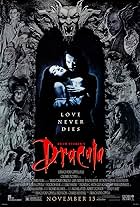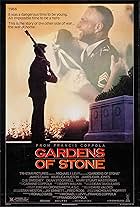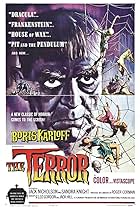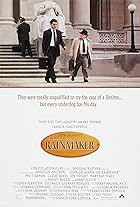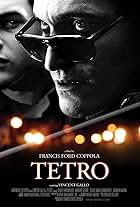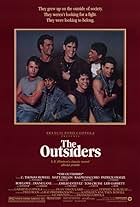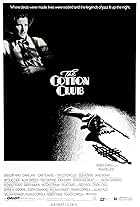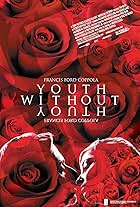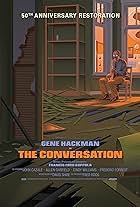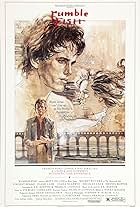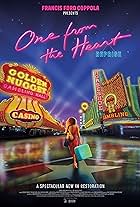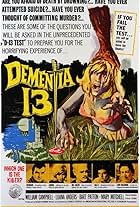Francis Ford Coppola's Movies Favorite-to-Least-Favorite
Movies Coppola wrote, but didn't direct, are not included, such as the great "Patton" (if I were to include that one, it'd be in the top 3-5).
List activity
109 views
• 0 this weekCreate a new list
List your movie, TV & celebrity picks.
- 24 titles
- DirectorFrancis Ford CoppolaStarsMartin SheenMarlon BrandoRobert DuvallA U.S. Army officer serving in Vietnam is tasked with assassinating a renegade Special Forces Colonel who sees himself as a god.The trip up the river led by Capt. Willard (Sheen) exposes him to two extreme viewpoints of war represented by the two colonels he encounters on his long journey, both of whose names start with 'K,' which is no accident:
Lt. COL. KILGORE (Duvall) is a romantic who embraces war as a lifestyle and even feeds off it, i.e. glorifies it. The fact that he's a romantic can be observed in the air-raid on the village where he literally plays Wagner as a prologue. He feeds off the war to the extent that he "loves the smell of napalm in the morning." War is just another day to him so why not go surfing? Since he lives off of the war there's no way it can kill him or even give him a scratch. Kilgore naturally has the support of the top brass because he's part of the system and plays the game of war.
COL. KURTZ (Brando), by contrast, sees through this hypocrisy. He realizes that being in a state of war is humanity gone mad. It's living horror and therefore must be ended through the quickest means possible at whatever cost. He refuses to play the game of war as he expertly takes out double agents, etc. Of course the brass can't have this so they slander him as insane to justify assassinating him via Capt. Willard (Sheen). The existential Kurtz becomes increasingly disillusioned and depressed after jumping ship from the system and now has no sanctuary. He can never to home again. Death is the only way out. His consolation is that Willard -- a kindred spirit, just younger -- will tell his son the truth. - DirectorFrancis Ford CoppolaStarsMarlon BrandoAl PacinoJames CaanThe aging patriarch of an organized crime dynasty transfers control of his clandestine empire to his reluctant son.This is basically a drama with flashes of brutal, shocking hoodlum-oriented violence.
Highlights abound, starting with Brando's great performance, well displayed in the opening scene, and the awesome mid-40s ambiance. The restaurant sequence is suspense at finest. Other great scenes include the Beverly Hills horse bit; a rugged henchman unexpectedly garroted; Michael's rescue of his father at a deserted hospital (which is reminiscent of a similar sequence in 1968's "Bullitt"); the assassination in the reeds; the brief-but-potent "love at first sight" moment in Sicily; Sonny's beating the snot out of a deserving POS; the sudden explosive death of a loved one; the unexpected tollbooth sequence; Vito playing with his grandson in the garden with an orange peel in his mouth; and the baptism sequence juxtaposed with Michael's men carrying out their wicked deeds.
What's the moral of the story? The ending tells all: Choosing a life in league with organized crime will turn you into a hypocritical, lying, murderous fool. - DirectorFrancis Ford CoppolaStarsGary OldmanWinona RyderAnthony HopkinsThe centuries old vampire Count Dracula comes to England to seduce his barrister Jonathan Harker's fiancée Mina Murray and inflict havoc in the foreign land.Coppola & (scriptwriter) James Hart's version is colorfully lavish and adds an interesting love story to Stoker's tale with potent spiritual significance. This will, of course, turn-off purists who prefer the totally malevolent king of vampires of the original novel, which is what disenchanted me the first time I saw it, but who can blame Coppola & Hart for wanting to try something new with the well-worn yarn? Despite a shaky final act, they largely succeed.
- DirectorFrancis Ford CoppolaStarsAdam DriverGiancarlo EspositoNathalie EmmanuelThe city of New Rome faces the duel between Cesar Catilina, a brilliant artist in favor of a Utopian future, and the greedy mayor Franklyn Cicero. Between them is Julia Cicero, with her loyalty divided between her father and her beloved.Some critics call it a “big mess,” but the plot is actually simple. It’s Francis’ artsy style that throws people off wherein he respects the intelligence of the viewer to put the pieces together. This approach was evident in his previous pictures, like “One From the Heart,” “Rumble Fish,” “Bram Stoker’s Dracula,” “Youth Without Youth” and “Twixt” (aka “B-Twixt Now and Sunrise”). Speaking of those flicks, if you liked any of them, or hated ’em, this is cut from the same artistic cloth.
As observed with “Tucker: The Man and His Dream,” “Tetro” and even “Apocalypse Now” (the character of Kurtz), Coppola likes to parallel aspects of his own life in his movies. Here, he’s Cicero (Adam Driver), an award-winning genius who has an ambitious new project that will revolutionize the landscape if carried out, but those in power oppose his noble efforts. He’s constantly slandered or framed with his indiscretions not helping matters. He’s also troubled by the death of his wife and his unborn children (remember the tragedy of Francis’ eldest son, Gian-Carlo, in 1986?). Yet he presses on with his vision and ultimately changes the world with his art.
At the end of the day, the movie’s entertaining on several fronts and stuffed with quality mindfood, not to mention it has a welcome warmhearted close. I busted out laughing on several occasions in light of the creative madness of it all. For those who say the amusement was “unintentional,” I guess they never saw Coppola’s previous film “Twixt,” not to mention earlier ones like “You’re a Big Boy Now.”
I see the city of Megalopolis as a type of the New Jerusalem in the Bible, the eternal city described in Revelation 21-22 (awesome streets of gold and all that). "The wages of sin is death, but the gift of God is eternal life" and so the impenitent in the movie reap the wages of their transgressions whereas those who change their minds/thinking/actions (that is, they repent) are able to enjoy the benefits of the amazing new city.
If you value it, this is a flick you’ll be able to go back to for gems missed on previous viewings. - DirectorFrancis Ford CoppolaStarsJeff BridgesJoan AllenMartin LandauThe story of Preston Tucker, the maverick car designer and his ill-fated challenge to the auto industry with his revolutionary car concept.The setting is historical, based on Preston Tucker from the late 1930s-1950, the genius inventor (Jeff Bridges) who designs the Tucker 48 sedan, aka the "Tucker Torpedo," an automobile way ahead of its time with aerodynamic style, padded dash, seat belts, pop-out windows, fuel injection and disc brakes. The tone is fun & snappy and the pace is quick, akin to "Seabiscuit," which shows that the movie itself was ahead of its time. It was released in 1988, but has a timeless feel, like it could be released today.
Speaking of Francis, he was probably attracted to the story because Tucker's experiences parallel his own in the movie business. The big shots who run any industry don't want some new guy, virtuoso or not, waltzing in to their territory and taking a piece of their pie, making them look bad in the process. Tucker's story parallels independent prodigies in any industry, like Trump strolling into DC and stirring up the slanderous ire of those in the swamp. - DirectorFrancis Ford CoppolaStarsKathleen TurnerNicolas CageBarry MillerPeggy Sue, on the verge of a divorce, faints at her 25th high school reunion, and wakes up to find herself back in 1960, leading her to try to spot and correct the mistakes that led to disappointments and an unhappy marriage.This is perhaps Coppola's most entertaining film in a popcorn-entertainment sense. It immediately brings to mind "Back to the Future," but is more adult-oriented and (obviously) comes from a female perspective. It also recalls the future "17 Again" and is closer in tone to that flick. If you like those movies you'll probably like this one. It offers a nice mix of superficial-yet-genuine amusement and weighty reflections. Nicolas Cage employs an interesting weird-axx voice to the point that I was wondering if he was dubbed.
- DirectorFrancis Ford CoppolaStarsJames CaanAnjelica HustonJames Earl JonesA Sergeant must deal with his desires to save the lives of young soldiers being sent to Viet Nam. Continuously denied the chance to teach the soldiers about his experiences, he settles for trying to help the son of an old Army buddy.This is a worthy companion piece to all those Vietnam War flicks of the 70s-90s as it chronicles what was happening on the home front. It's a war drama, but not a war action film, yet not a dull, lifeless drama.
James Caan and James Earl Jones have good chemistry as old Army buds and DB Sweeney works well as the "new kid" (he looks like a young Ben Affleck when he broke out ten years later). Meanwhile Mary Stuart Masterson was never more beautiful.
In ways it's reminiscent of Eastwood's "Heartbreak Ridge" with its spunkiness and a smidgen of comedy (which I wasn't anticipating), although don't expect the cartoonish character of Cpl. Stitch Jones (Mario Van Peebles). In other words, the proceedings aren't all dour. Yet there are heavy, moving parts given the topic. Coppola contrasts the beginning scene and ending scene. They're the same sequence, but it holds more weight the second time around for reasons you'll discover.
I was entertained, amused and moved. It's a necessary piece of the puzzle in understanding the era of the Vietnam War. While it's not on the level of greatness of Coppola's "Apocalypse Now" or "Forrest Gump," it's still a solid Coppola movie with a little sloppiness here and there. - DirectorFrancis Ford CoppolaStarsAl PacinoDiane KeatonAndy GarciaFollows Michael Corleone, now in his 60s, as he seeks to free his family from crime and find a suitable successor to his empire.Part III is on par with Part II in tone and quality, but I give this one the edge in overall entertainment value. Michael (Pacino) has much more human dimension here as opposed to his one-note grim depiction in Part II. His scenes confessing his sins to a priest in a Vatican City garden and, later, with Kay in Sicily are good examples. There are several other highlights amidst the drama, like the break-in scene at Vincent's abode, the Atlantic City massacre, the street festival hit, the entire closing opera sequence that juxtaposes the performances of the play with various violent attacks and the aftermath.
Andy Garcia brings fresh blood and vitality to the trilogy in a pretty significant role, as does Sofia in a relatively small part. Winona Ryder was originally cast for the part, but she was too sick to perform and so Francis chose his daughter at the last minute and she's fine in the role. Does anyone seriously think Winona Ryder would have taken this peripheral part and done it any better? I heard all the ridiculous criticism over Sofia's performance before viewing the film and therefore kept waiting for a serious train wreck, but it never happened. She did a fine job for a side character who's an unseasoned, slightly self-conscious (i.e. wooden), flirty teen. To those sheeple who have joined the idiotic critical feeding frenzy: Shut the fudge up and get a life!
The moral of the story rings loud and clear: Choosing the life of organized crime will result in a grim life of constant heartache and premature death all around you. Needless to say, Life's hard enough without taking that foolish route. - DirectorFrancis Ford CoppolaStarsLisa BailesLucy BunterDylan CavazExperience the Authentic Cut of a haunting murder-mystery written, directed, and produced by Francis Ford Coppola, starring Val Kilmer, Bruce Dern, and Elle Fanning.Whether the original "Twixt" from 2011 or this re-titled reedited version, it's a mystery/dramedy with elements of horror, combining the look of Coppola's "Bram Stoker's Dracula" with the inscrutableness of his "Youth Without Youth," plus a welcome side of humor. It's a quirky mystery that leaves you scratching your head, but you find yourself enjoying the ride, a Gothic tale with beautifully haunting cinematography & atmosphere, highlighted by Poe, bell towers, ghosts and bats in the belfry. The enhanced moonlighting and otherworldly blueish gray tones are awesome.
It tackles the creative process as we observe the desperation of a writer scraping the bottom of the barrel, often under the influence of sundry intoxicants. Will he come up with a best seller? Will he solve the murder mystery? Will he come to terms with his specters and demons that arise from his guilt over what happened to his daughter? That element, by the way, brings to mind Francis' 23 years-old son, Gian-Carlo Coppola, who was tragically killed in a similar boating accident in May, 1986. The reckless driver was Griffin O'Neal (Ryan's son).
A lot of the movie is an internal dialogue with the author's own ghosts and literary influences. Charles Baudelaire (a notorious substance abuser) is referenced, with the aforementioned Poe intermittently appearing, but only when Baltimore is under the influence, or dreaming. Did the abuse and murder of the children happen as shown? Or did Poe and the vampire incarnation of Hall's own daughter serve as muses as he works his way through creating a story that might turn his career around? Coppola leaves it up to you to decide what is real and what is imagination, but the answers are there if you want 'em.
Francis got the story from a dream he had while staying in Istanbul. This sets-up the criticism that Coppola's dream is the audience's nightmare. While "Twixt" and this reedit are too ambiguous for their own good, it's obviously intentional and he wanted the viewer to leave with questions to ponder. Besides, does everything need to be spelled out? - DirectorsRoger CormanFrancis Ford CoppolaJack HaleStarsBoris KarloffJack NicholsonSandra KnightA young French soldier cut off from his unit is beguiled by a mysterious woman, whom he learns is the wife of the local Baron - and that she seemingly died twenty years earlier.After a few days of shooting, Roger Corman couldn't film the rest of this movie himself due to union legalities, so he enlisted several young filmmakers to assist, including sending Coppola up to the Big Sur area for eleven days. Sets from other AIP movies were also used, notably "The Haunted Palace" with Vincent Price.
I've heard people complain about the story supposedly not making sense, but I found the plot easy to follow and even had it figured out by the halfway point, not including the dubious curveball thrown-in at the end (you'll know what I mean).
It's very Hammer-esque, albeit made in California and on a lower budget than the typical Hammer flick (which weren't expensive films by any means). So if you like haunting Gothic horror with mysterious castles, ghosts and witches in the mold of Hammer flicks you'll probably like "The Terror." It's particularly reminiscent of "Dracula, Prince of Darkness" (1966), which came out three years later.
As far as 60's spooky MOOD goes, this movie's superb, which includes the Gothic score (Ronald Stein). Unfortunately, Nicholson's voice is noticeably incongruous and his lines are sometimes delivered in a stilted manner, but that's a minor quibble. - DirectorFrancis Ford CoppolaStarsElizabeth HartmanGeraldine PageRip TornConfused post-teenage virgin Bernard Chanticleer moves to New York City, falls for cold-hearted inscrutable go-go dancer Barbara Darling, then finds true love with a loyal lass.This is a quirky coming-of-age comedy/romance set in the Big Apple based on the 1963 novel of the same name, except that the setting was switched from London to Manhattan along with changing the kid's vocation.
It was Coppola's thesis project for UCLA, but this is far from a "student film" as it has the polish of professionalism. He had already directed a couple flicks for Roger Corman with this one including a couple snippets from his "Dementia 13" (1963). Coppola made $8000 on the gig with an $800,000 budget that spiraled into about $1 million.
While critics say the movie rips off Richard Lester's "The Knack ...and How to Get It," Francis said his script was written before that one came out, but he did admit to being influenced by Lester's "Hard Day's Night."
I couldn't help think of "Village of the Giants," just without the goofy giant-formula, although there's definitely some goofiness, like the amusing rooster on the fifth floor. "The Graduate" was obviously influenced by it, but I'd watch this over that iconic film any day. After viewing, I was reflecting on the art vs. Entertainment conundrum because Coppola made a flick with obvious artistic flair that didn't forget to be entertaining. - DirectorFrancis Ford CoppolaStarsMatt DamonDanny DeVitoClaire DanesA newly minted lawyer who's just passed the bar exam takes on a fraudulent insurance company in a multi-million dollar lawsuit.This features a notable cast and was Damon's break out role as a leading man, paving the way for hits like "Good Will Hunting" and "Saving Private Ryan." He's affable as the principled young lawyer and I liked the way the movie discreetly shows his new home life with the elderly lady, plus other budding relationships.
It's decidedly a drama with many courtroom scenes, so don't except the thrills of other Grisham-based films, like the excellent "The Firm" and action-packed "The Pelican Brief," although there is an intense action sequence in the second half. While the first half confidently take its time with the drama, throwing in moments of realistic amusement, it segues into a compelling third act. Furthermore, "The Rainmaker" is a must for anyone interested in the good, the bad and the ugly of the legal arena in America. - DirectorFrancis Ford CoppolaStarsVincent GalloAlden EhrenreichMaribel VerdúBennie travels to Buenos Aires to find his long-missing older brother, a once-promising writer who is now a remnant of his former self. Bennie's discovery of his brother's near-finished play might hold the answer to understanding their shared past and renewing their bond.This is an artful and somewhat hypnotic adult-oriented drama by the master filmmaker, the very opposite of conventional Hollywood blockbusters. Ehrenreich is reminiscent of Leonardo DiCaprio when he was young while Gallo is broodingly charismatic as the eponymous protagonist. Coppola has always had a good eye for female cast and "Tetro" delivers the goods with Verdú and Gala, although I wish the latter had more screen time. There's a revelation at the end that I failed to anticipate, but should have because everything in the story points to it.
Francis said at the Cannes film festival that "nothing in (the movie) happened, but it's all true." In other words, the film's autobiographical in some ways. The challenge is to perceive the parallels. Two are obvious seeing as how Coppola's father was a famous conductor.
The other is when South America's most honored critic asks Tetro if her opinion matters to him anymore and he honestly says it doesn't; sticking her nose in the air, she silently walks away. Like Tetro, Coppola no longer cares what critics think of his works. It's akin to Kurtz' disposition toward the pathetic brass in "Apocalypse Now." The critic's name in the film is fittingly "Alone," played by Carmen Maura.
Then there's the fact that Francis has a brother he's been known to have a love/hate relationship with, not to mention how his nephew, Nicolas Cage, is a little reminiscent of the titular character.
But none of this speculation really matters; all that matter is that "Tetro" is a creative, operatic, entertaining drama. But stay away if you need constant 'exciting' things going on, like explosions, absurd action scenes and the corresponding CGI (not that there's anything wrong with that, lol). - DirectorFrancis Ford CoppolaStarsC. Thomas HowellMatt DillonRalph MacchioIn a small Oklahoma town in 1964, the rivalry between two gangs, the poor Greasers and the rich Socs, heats up when one gang member accidentally kills a member of the other.This was one of two films Coppola shot back-to-back based on SE Hinton's young-adult novels. This one was successful at the box office while the even more artsy "Rumble Fish" failed to draw an audience.
Hinton began writing "The Outsiders," her most popular novel, in 1965 when she was 16, inspired by two rival gangs at her school, Will Rogers High School, which is about 2.5 miles west of downtown. I bring this up because the movie definitely comes across as an overdramatic tale from the perspective of a teenager. The most mundane, trivial events are presented as life-or-death happenings, like going to a drive-in theater or facing your nemeses at a park where one person idiotically brings a switchblade to a fistfight.
This explains why some people write the flick off as "the cheesiest and corniest movie ever." In its defense, you have to acclimate to it in order to appreciate it. Go back to what was happening in your life when you were in your mid- teens and how a fistfight or breakup was an earthshattering event. The movie captures this very well. - DirectorFrancis Ford CoppolaStarsRichard GereGregory HinesDiane LaneMeet the jazz musicians, dancers, owner, and guests (like gangster Dutch Schultz) of The Cotton Club in 1928-1930s Harlem.To be expected, there's quite a bit of mob nastiness, but it's nicely balanced out by the music & entertainment. While I'm not a big fan of the music of that period, there are a couple of numbers that really impressed me, including one by Lonette McKee's character. The gangster shenanigans are also balanced out by quite a few other aspects, particularly the fact that the film has heart. In short, despite being mainly a mobster movie with a huge side of song & dance, there's some warmth here and there. Also, it's nice to see Fred Gwynne play someone other than Herman Munster.
The movie's a great way to go back in time to the Prohibition-era and get a taste of what it was like, Hollywoodized and overdone though it may be. - DirectorFrancis Ford CoppolaStarsAl PacinoRobert De NiroRobert DuvallThe early life and career of Vito Corleone in 1920s New York City is portrayed, while his son, Michael, expands and tightens his grip on the family crime syndicate.The good news is that the flashbacks pertaining to Vito (De Niro) are good, starting with the shocking opening scenes.
The saga of Michael (Pacino), by contrast, is relatively dull, particularly the first half, which mostly involves overlong scenes of talky drama. Michael's story simply lacks the energy and highlight-every-15-minutes of the prior film. Moreover, Pacino is thoroughly one-note solemn as Michael, lacking the character's interesting story arc in the first installment and the dimension of the third. I'm not blaming Pacino, as he simply played the role as written and does it well. I'm just saying that he's not a very captivating character, particularly compared to Brando or De Niro as Vito. He's just too one-dimensional and therefore uninteresting.
Thankfully, things perk up in the second half culminating with an explosive showdown between Michael and Kay, which had to happen in light of the climatic scene of the previous movie.
Bottom line: It's a worthwhile crime drama with some highlights, but IMHO it's not in the same league as the first movie in overall entertainment. - DirectorFrancis Ford CoppolaStarsJames CaanShirley KnightRobert DuvallWhen a housewife finds out she is pregnant, she runs out of town looking for freedom to reevaluate her life decisions.This was made three years before Coppola became famous with "The Godfather." It was his first movie in which he had total creative control, writing and directing on the road without producers breathing down his neck. The story was inspired by Francis' mother curiously leaving home for a few days when he was a kid. It's about a woman's haphazard search for freedom from the manacles of domestic life. Unlike the domineering male protagonists of "Patton" (which he wrote), the Corleone patriarchs and Kurtz in "Apocalypse Now," Coppola shows us here several females manipulating men: Natalie with Kilgannon, Gordon and even Vinny; Ellen with Kilgannon and her father; and Rosalie with her dad.
Interestingly, it's the express opposite of Francis' previous movie, the fun "Finian's Rainbow," which was based on the 1947 Broadway hit. One is an energetic musical with a large cast while this one has an everyday, depressing tone, made with a small cast & crew. While neither were successful at the box office, they both went on to garner cult followings after Coppola's great success in the 1970s-90s (of course he had a few movies that didn't do so well, but what else is new?).
I can see where many viewers would find "The Rain People" dull, but it features a daring premise and has historical significance, not to mention some notable cast members. Plus, it's a quality period piece for the late '60s. In regards to the commendable premise, Natalie loves her husband, but is uncertain about the responsibility of having his child and so instinctively flees the scene. Ironically, Killgannon becomes her surrogate 'child' on her road odyssey wherein she struggles with her obligations.
Concerning the 'historical significance,' the industry proudly cites "Stand Up and Be Counted" as the first flick to address women's liberation, which it overtly does. But this came out three years prior and few people noticed at the time because it's so covert. It was ahead of its time. - DirectorFrancis Ford CoppolaStarsFred AstairePetula ClarkTommy SteeleAn Irish immigrant and his daughter move into a town in the American South with a magical piece of gold that will change people's lives, including a struggling farmer and African American citizens threatened by a bigoted politician.This is a fun musical based on the 1947 Broadway play, helmed by Coppola after proving his mettle with "You're a Big Boy Now." Although overlong, it's an energetic mix of Elvis' "Follow that Dream," Astaire musicals and "The Wizard of Oz." The above-noted cast members are all highlights, along with Keenan Wynn as the racist Senator and Al Freeman Jr as the research botanist. Astaire was 68 during shooting while Petula was 34; Franks was 35 (but looked older) while dancer Barbara Hancock was only 17. Speaking of the latter, she shines as she frolics about doing flips and what have you.
Someone criticized that the movie borrowed too many Hippie elements from the musical "Hair," but this is totally bogus seeing as how the film started shooting (with a finished script) in late June, 1967, and "Hair" didn't debut off-Broadway until four months later. It didn't make it to Broadway until 1968 while the movie version came out in 1979. No doubt the scriptwriters & Coppola naturally tried to make the 1947 musical more relevant to the mid-60s, but this had zero to do with ripping off "Hair." Personally, I didn't perceive much if any "Hair"-like elements and, honestly, it could easily fit the time-frame of the late '40s.
Wynn's character was inspired by real-life Senator Theodore Bilbo of Mississippi, a Democrat, who died seven months after the musical debuted. Film studios wouldn't touch it due to the satirical bits pertaining to racism (like the Senator amusingly morphing into a black man); that is, unless they could change the script, which the writers wouldn't allow. By the mid-60s, however, the time was right. - DirectorFrancis Ford CoppolaStarsTim RothAlexandra Maria LaraBruno GanzA love story wrapped in a mystery. Set in World War II Europe, a professor is changed by a cataclysmic event and explores the mysteries of life.The plot brings to mind two films from the mid-90s that also address people with fascinating powers: "Powder" and "Phenomenon." The latter was decent whereas the former shot for greatness and in some ways attained it. "Youth Without Youth" is completely different in tone, mostly due to the WWII time-frame, but also because it's less of a wannabe blockbuster and more artsy and nigh unfathomable.
It has been said that "Youth Without Youth" was an intensely personal project for Coppola. The topic, based on the novel by Mircea Eliade, resonated with him and he was driven to convey it on film. You get the impression that Coppola had discovered the answer to the mysteries of life and wanted to share it with the world.
Think about it: Coppola is one of the greatest filmmakers of all time and he had a full decade to conceive, prepare, make and release a film. He could've churned out blockbuster drivel like the "Transformers" movies (not that there's anything wrong with that, lol), but as a true artist he's beyond caring about creating popular popcorn fare and the "success" thereof. It brings to mind Willard's observations about Col. Kurtz (Brando) in Coppola's renowned "Apocalypse Now": "He could've gone for general, but he went for himself instead." Francis could've gone for mindless and lucrative entertainment, but he had something more important in mind.
So "Youth Without Youth" is a work of art, and certainly interesting and entertaining in some ways, but it requires willingness and effort to handle the 124 minutes runtime. It is a dense film, loaded with depth; it may even hold the secrets to life itself! Beyond that, it features some beautiful cinematography, music and women.
Speaking of the women, I found it curious that females are shown to be universally attracted to Dominic, the main character played by Roth. After all, Roth is short and hardly a George Clooney. But then I reflected on it and accepted it. Why? Because women have a sort of sixth sense, typically called "women's intuition," where they see or sense things beyond the physical. In other words, Dominic had highly evolved and was, in essence, a superior human being. He may not have been an Adonis, but women instinctively picked up on his evolutionary superiority and drew to him like a magnet.
Another plus are the locations, shot in Romania and Bulgaria with establishing shots of the Himalayas and India. - DirectorFrancis Ford CoppolaStarsGene HackmanJohn CazaleAllen GarfieldA paranoid, secretive surveillance expert has a crisis of conscience when he suspects that the couple he is spying on will be murdered.While the movie was released after Watergate, the story was written in the mid-60s and the movie was completed several months before the scandal broke out. It was sorta prescient in that it used the very same surveillance and wire-tapping equipment that members of the Nixon Administration used to spy on their opponents.
This is a slow drama focused on the psychology of the privacy-obsessed protagonist and the meaning of a phrase on the recording, depending on which word is stressed. It's surprisingly engaging for being so uneventful (until the final act, that is). The way the revelations are depicted at the end show that this movie influenced others 25 years later, like 1999's "The Sixth Sense." But that film is more cogent with its revelations whereas "The Conversation" keeps everything somewhat ambiguous.
Unfortunately, I didn't find Hackman's character interesting, like his characters in other films, e.g. "The Poseidon Adventure" and "Downhill Racer." Nor did I find his acting convincing when he would stutter. And, as expert of a surveillance technician he is, he's blatantly bumbling in numerous others. I guess he's a metaphor for America, which was a technically rich superpower, but utterly stoo-pid in many ways (e.g. the Vietnam fiasco). - DirectorFrancis Ford CoppolaStarsMatt DillonMickey RourkeDiane LaneAbsent-minded street thug Rusty James struggles to live up to his legendary older brother's reputation, and longs for the days of gang warfare.This was the second of two flicks based on SE Hinton's young-adult novels shot back-to-back by Coppola. The first one was "The Outsiders" and it was successful at the box office while this one failed to draw an audience. Unlike "Outsiders," which takes place in 1965, this one is set in the modern day, 1982, the time of shooting (or at least the late 70s). Hinton, by the way, has a cameo as the hooker on the strip that propositions Rusty James (Dillon) and Steve (Spano).
She was only 16-17 when she wrote "The Outsiders" and so that movie is from the perspective of a mid-teenager. By contrast, she was in her mid-20s when she wrote "Rumble Fish" and this is also reflected in the corresponding movie: The Motorcycle Boy (Rourke) has grown-up and is no longer interested in juvenile delinquency, which confuses Rusty James.
Both "The Outsiders" and "Rumble Fish" are arty, but this one is more so. It's a mix of "The Outsiders" and Coppola's experimental "One from the Heart," along with bits of "The Warriors" and "Grease." Like "One from the Heart," the story is very basic while the filmmaking is highly stylized, which results in a beautiful film that's entertaining on a visual & audio level, but not very absorbing story-wise.
What's it all about? Some answers include: The challenge of unconventional people in a conventional world, living in someone's shadow, the cult of personality, growing up while simultaneously giving up childish things, setting others free, how envy murders others (figuratively or literally), the potential corruption of authority, the resultant injustice and sacrificing oneself for loved ones.
I can't close without noting how Cage is in the prime of his life and surprisingly good-looking (speaking as a staunch heterosexual). Not that he later became Quasimodo, but I never viewed him as a handsome actor, like say George Clooney. - DirectorFrancis Ford CoppolaStarsFrederic ForrestTeri GarrRaul JuliaA couple has a fight after living together 5 years in Las Vegas. They go out and celebrate 4th of July, each with a new partner. Breakup?This was Coppola's follow-up to his incredible "Apocalypse Now." It's a romantic musical shot entirely on a large sound stage (with one sequence done in the back lot) of Coppola's Zoetrope Studios, a studio by artists for artists. It's in the tradition of the outstanding "Moulin Rouge" (1952) and the precursor to the dynamic "Chicago," but it lacks the compelling story of the former and the electricity of the latter.
Coppola was excited about using experimental video equipment to view/edit the movie and it certainly looks good, but the story is simplistic, which no doubt was the point in order for the viewer to focus on the artistic visuals and pleasant lounge music (by Tom Waits featuring Crystal Gayle). Nevertheless, the story is dull and Forrest lacks the charm to play a leading man, although Raul is charismatic. On the female front, Garr looks great as she nears the end of her physical prime and this is perhaps the best film to view Nastassja's beauty.
While the film has its partisans and is certainly worth checking out for the reasons noted, it flopped upon release and it took Coppola a decade to recover financially. But I respect Francis for his experimental drive. They can't all be hits. - DirectorFrancis Ford CoppolaStarsWilliam CampbellLuana AndersBart PattonA scheming widow hatches a bold plan to acquire her late husband's inheritance, unaware that she is being targeted by an ax murderer who lurks in the family's estate.Shot in B&W, this was the theatrical debut for writer/director Francis Ford Coppola after producer Roger Corman offered him to do a low-budget imitation of "Psycho" in Ireland with funds left over from his movie "The Young Racers," on which Coppola worked as a sound technician. Actually, this wasn't technically Coppola's first film as he did eleven days shooting of Corman's superior "The Terror" in Big Sur, California.
The story and setting are very different from "Psycho" and its sister English film "Horror Hotel" (aka "The City of the Dead"), which was produced/released at the same time as "Psycho," although it wasn't released in America until two years later. Nevertheless, "Dementia 13" is cut from the same B&W horror cloth and shares an infamous plot twist that originated with those two films. Like "Psycho," there's a psycho madman, although he prefers an axe to a butcher knife.
Unfortunately, "Dementia 13" isn't great like "Psycho" or formidable like "Horror Hotel," mainly because the story is sorta befuddling (like the two bodies of water that aren't properly differentiated), although most everything's explained at the end. There's a good gothic ambiance, but the bewildering storytelling prevents the flick from taking off. And Luana Anders, while okay, is second rate compared to the breathtaking Venetia Stevenson in "Horror Hotel" and Janet Leigh in "Psycho."
Corman wasn't happy with what Coppola brought home to California. He (rightly) insisted that certain scenes needed simplified and that more violence was necessary, to which Jack Hill was hired to shoot the additional poacher scenes. A useless prologue was also tacked on to beef-up the runtime, which wasn't featured on the version I watched. If you're familiar with Coppola's later work, like "Youth Without Youth" and "Twixt," aka "B'Twixt Now and Sunrise," you know that he has the tendency to overcomplicate scripts. That's the problem with "Dementia 13." Still, it definitely upped the slasher ante and influenced that particular horror genre. - DirectorFrancis Ford CoppolaStarsRobin WilliamsDiane LaneBrian KerwinBecause of an unusual disorder that has aged him four times faster than a typical human being, a boy looks like a 40-year-old man as he starts fifth grade at public school after being homeschooled.This takes the basic topic of "Big" and mixes it with the awkwardness of "Milk Money." It tries to be a serious drama, a slapstick comedy and a profound tragedy, which is tonally bewildering. Nevertheless, it would've been more successful if they worked out the kinks in the slapstick scenes, especially the ones with the kids, like the treehouse sequences. There's nothing wrong with the cast or the filmmaking except that the script needed improved to flesh out the potential. As it is, I had a hard time buying that Robin Williams was a 10 year-old boy and the comedic scenes with the kids didn't work for me, although they're passably amusing.
Thankfully, there are several things that make the movie worthwhile: Lopez, Drescher and Lane are thoroughly attractive and I especially enjoyed the scenes with Lopez and Drescher, like the bar sequence; Cosby is his likable self (before his fall from grace); and the second half is better than the unsure first half.
Francis proved that he could effectively do this kind of whimsical fare with "Peggy Sue Got Married" (1986), but here he needed a better script. Still, some people love this movie (while critics like Siskel & Ebert tore it to pieces), so I suppose it's a matter of taste.


